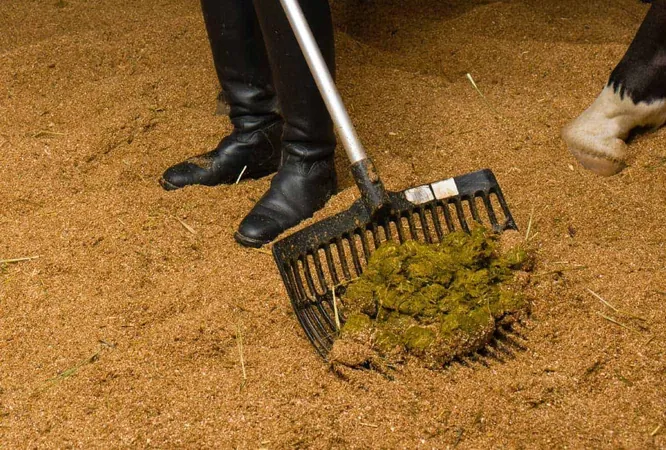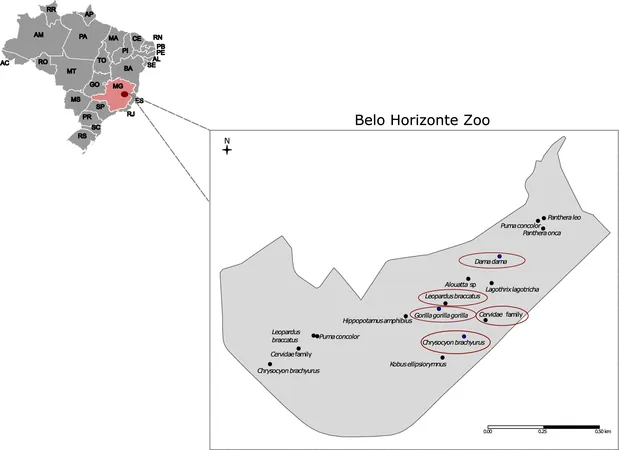
Revolutionizing Horse Gut Health: Breakthroughs in Fecal Transplant Storage Techniques!
2024-11-23
Author: Ming
Revolutionizing Horse Gut Health: Breakthroughs in Fecal Transplant Storage Techniques!
In a groundbreaking development for equine medicine, fecal microbiota transplantation (FMT) is emerging as a critical strategy to enhance the gut health of sick horses. This innovative process involves veterinarians transferring feces from healthy horses into the gastrointestinal tracts of those suffering from microbiome imbalances, with the aim of restoring their gut flora and overall health. However, the intricacies of FMT are still not fully understood, particularly when it comes to storage methods that can ensure the viability of the transplant material for future use.
Unlocking the Secrets of Fecal Storage
A recent study has shed light on the optimal ways to store FMT products. Researchers meticulously examined the viability and diversity of fresh versus frozen fecal specimens collected from healthy horses, testing them in various preservation solutions—namely, saline with glycerol and saline alone—at temperatures of -20°C and -80°C. The findings were remarkable: preserving the fecal material at -80°C using saline and glycerol was the most effective method for maintaining healthy microbial communities. This could prove crucial in treating horses with gastrointestinal issues.
Practical Applications for Antibiotic Use in Horses
Alicia Long, DVM, Dipl. ACVIM, ACVECCS, an assistant professor at the University of Pennsylvania’s New Bolton Center, provided insight into the practical applications of this storage technique. She emphasized its value when horses undergo elective surgeries that involve receiving prophylactic antibiotics, processes that can significantly disrupt the gut microbiome. By collecting and storing feces prior to antibiotic treatment, veterinarians can ensure that remediating transplants are readily available, preserving the gut's health at its baseline state.
“We know that antibiotics can vastly alter the gut microbiome, and restoring it can take weeks to months,” Long explained. In the absence of the original horse's fecal matter, healthy specimens from similar-aged horses on the same farm could serve as an alternative for FMT procedures, further broadening treatment options.
Future Research: Testing and Clinical Implications
Looking ahead, the next phase of research involves administering the stored fecal product to live horses and monitoring whether their microbiomes begin to mirror that of the donor horses. Long also mentioned the potential for studying the impact of FMT on horses with specific clinical conditions, like colitis, to assess its effectiveness in clinical settings.
As we advance, there is hope that larger volumes of FMT products can be preserved, which is vital since horses with gastrointestinal complications often require substantial quantities for effective treatment. This breakthrough in storage techniques could not only enhance outcomes for equine patients but potentially change the landscape of veterinary medicine.
Conclusion
To sum up, optimizing fecal transplant storage techniques represents a monumental step forward. It promises a future where gut health in horses can be proactively preserved and restored, improving the quality of life for countless equine companions. Stay tuned for more developments in this exciting field!




 Brasil (PT)
Brasil (PT)
 Canada (EN)
Canada (EN)
 Chile (ES)
Chile (ES)
 España (ES)
España (ES)
 France (FR)
France (FR)
 Hong Kong (EN)
Hong Kong (EN)
 Italia (IT)
Italia (IT)
 日本 (JA)
日本 (JA)
 Magyarország (HU)
Magyarország (HU)
 Norge (NO)
Norge (NO)
 Polska (PL)
Polska (PL)
 Schweiz (DE)
Schweiz (DE)
 Singapore (EN)
Singapore (EN)
 Sverige (SV)
Sverige (SV)
 Suomi (FI)
Suomi (FI)
 Türkiye (TR)
Türkiye (TR)